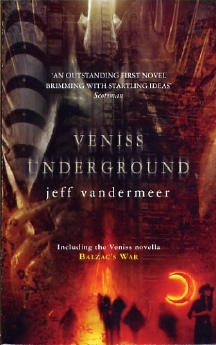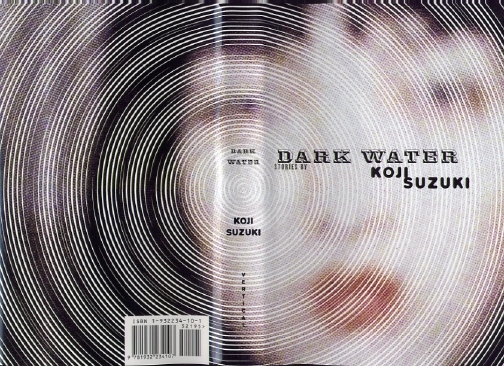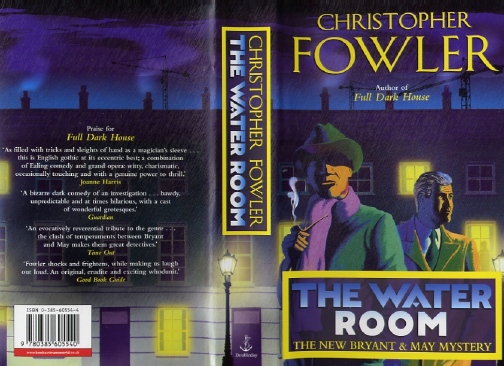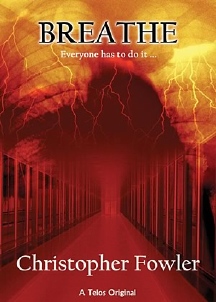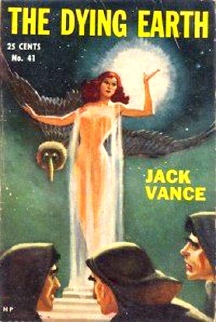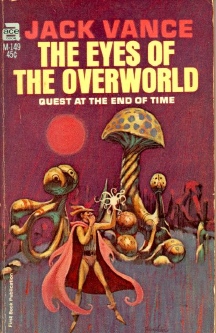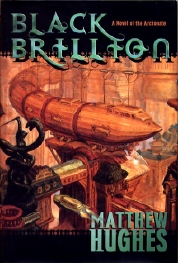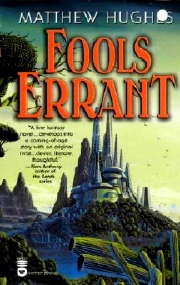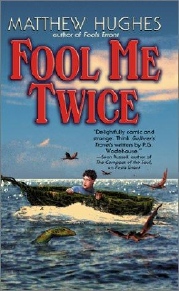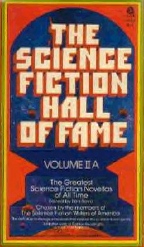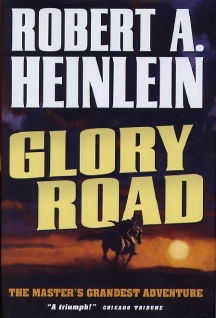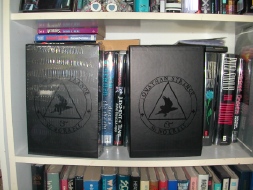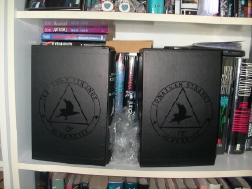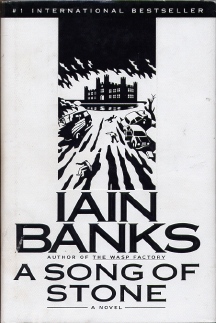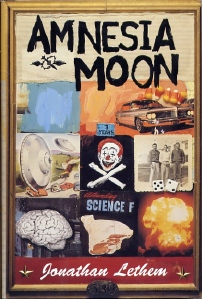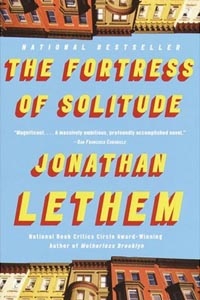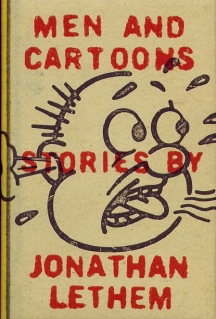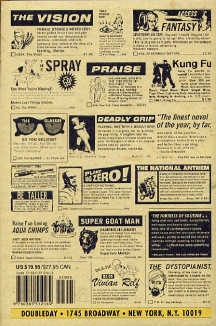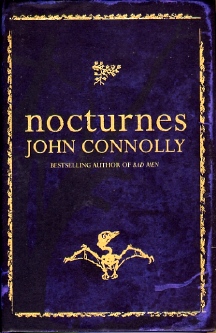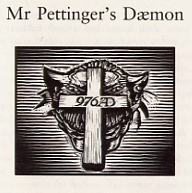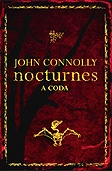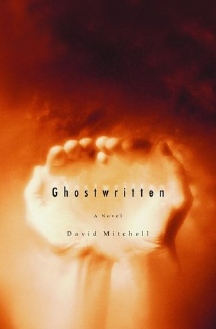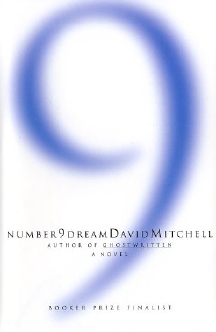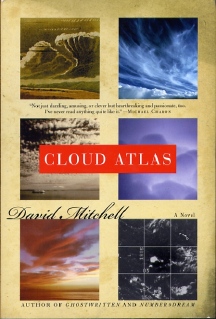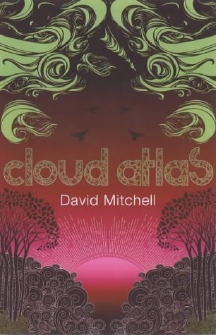|
|
|
This Just In...News from the Agony Column
|
10-29-04: Koji Suzuki's 'Dark Water' and Christopher Fowler's 'The Water Room'; Vandermeer Aboveground |
|||||||
US
Publishing Takes to VanderMeer's Novels & Collections
First and foremost, have you bought your UK first edition hardcover version of 'City of Saints and Madmen' yet? Pan-Macmillan/Tor UK have published an absolutely lavish edition of this novel, with all the bizarre fonts, weird illustrations and hundreds of pages of VanderMeer's best fantasy crammed into one gorgeous volume. If not, bookmark this page, then stop here, go order it up while you can still get first printings -- you can probably get some from Ziesing, I believe -- and then you can return, for more instructions. OK, so you're good on 'City of Saints and Madmen', right? Well, let's presume that you managed to miss both the Prime Books and the Night Shade version of 'Veniss Underground'; or better yet, you bought them both and are waiting for a version to read while you eat a good burrito in your favorite local taqueria. Now, we've already determined (see below) that PVC is bad for books. I'm not speaking strictly as an expert here, but I'm guessing that salsa verde, enchilada sauce, and melted jack cheese are also on the "bad for books list". And while they're not on my typical lunch menu -- I've read far too much Lovecraft to enjoy raw fish -- I think we can safely add wasabi and soy sauce to that list as well. So, not wishing to damage your various precious first editions of 'Venniss Underground', you'll be happy to hear that Pan Macmillan is soon to offer a handy, stick-it-in-your-pocket mass market paperback version of 'Veniss Underground', which includes the quite disturbing novella from his Golden Gryphon short story collection'Secret Life', 'Balzac's War'. So now, finally, you're good to read VanderMeer's biopunk novel while enjoying fine, but cheap cuisine. Of course, there's more news. Once you've locked in all these choices, you can rejoice that there will be even more versions of the VanderMeer titles you love and may not yet own. Bantam is intent on publishing 'Veniss Underground' domestically in 2005, with 'City of Saints and Madmen' expected the following year. Now; don't seal those first editions in PVC. Put them in a bookshelf as discussed below. Good. Most of all be ready for the new news, the new stuff. 'Shriek: An Afterword' is Jeff VanderMeer's latest novel, and Tor US will be publishing it RSN, that is "Real Soon Now". My experience leads me to believe that breath-holding is not a practical response to an RSN release date, but then, I just read about pearl divers (and you should read Jeff Talarigo's outstanding first novel, 'The Pearl Diver' as well). But as all my readers know by now, or should be able to suss, VanderMeer has not been resting on the laurels he's potentially to collect at this year's World Fantasy Awards, this weekend. No, he's got yet another weird little special project in the hopper. In this case, it's Prime Books' copy of (and I quote here) "interrelated micro stories", 'Secret Lives'. I'm presuming that there's no textual overlap with the work in 'Secret Life', though there are certain to be many inter-textual links, if I know VanderMeer. There will be a numbered, limited edition of 600 copies in hardcover, with 26 lettered copies that will include an all-expenses paid vacation to Ambergris and free tickets to the Festival of the Freshwater Squid. Little did I know when I started this column that I would become a travel agent. |
|||||||
| "Water
Water Everywhere" I'm betting that most of my readers are well aware that Coleridge's famous poem from which an even more famous rhyme hails is not just a jaunty little nursery tale. Or if it is, it's in a league with that charming tale of cannibalism 'Hansel and Gretel' or that delightful story of child abuse, 'Cinderella', which Robert Coover has updated so well in his novella 'Stepmother'. Water has long been an object of literary horror, from 'Moby Dick' to 'Jaws'. This month, two more top-notch writers bring us water-based works of fear. Yes, the similarities are only on the surface, but both works are well worth my readers' immediate attention.
I'll have to admit that I've been anticipating the release of Koji Suzuki's 'Dark Water' since I picked up 'Spiral'. I was glad but surprised that it came so quickly afterwards. Once again, Vertical-Inc has done a spectacular job of bringing us quality dark fiction from Japan. The cover, as you would hope, is by Chip Kidd, keeping the theme of the previous covers but eschewing the transparency for something, well -- darker. The frontispiece facing pages are textured to evoke a choppy ocean surface -- and beneath the surface, you find the fiction. 'Dark Water' is a collection of seven stories that share the sea and water as a theme. Each story is in the 25 to 40 page range, long enough to do more than just set a mood. They are framed by a Prologue and an Epilogue, and are described as being "carefully arranged". Given Suzuki's mathematical and science-fictional bent, displayed so surprisingly and superbly in 'Ring' and 'Spiral', I'm quite intrigued to see what he's gets up to in 'Dark Water'. Since any Suzuki release is now attended by movie-related brouhaha, I'll point out that the obligatory US adaptation of a work already successful in Japan is currently underway. I believe that only a single short story from the collection is being adapted, and my inclination is to think that it is the first story, 'Floating Water'. Thankfully, the US adaptation will be directed by Hideo Nakata, the director of the Japanese adaptation of 'Ring'. I hope my readers will note that I skillfully avoided using the word "helmed". This is a literary website. I'll leave the helming to the makers of military headgear.
From the island on the opposite side of the world, Christopher Fowler
brings us 'The Water Room', the second in his new series of long-awaited
Bryant and May mysteries. From the time I first encountered these two
characters in a short story in 'City Jitters', I've wanted Fowler to
do precisely what he's doing now. That would be long, complex and very
funny detective novels about the exploits of London's PCU -- the Peculiar
Crimes Unit.
This time around Bryant and May head down into the territory that Fowler himself so thrillingly explored in 'Darkest Day' -- London's many underground rivers. Somewhere beneath the city is "something resembling a logical solution" as to why an elderly woman was found dead in an apartment in Kentish town -- with river water in her throat. Armed with an ability to entertainingly bicker while consuming a plentiful supply of boiled sweets, Bryant and May risk their careers and then their lives to just how deep those seemingly restless waters run. |
|
10-28-04: Clarke's Law, Jack Vance, 'The Dying Earth' and Matt Hughes' 'Black Brillion' |
|||||||||||||
The
Beautiful Blur
"Any technology, sufficiently advanced, is indistinguishable from magic." From such simplicity are scores -- forests -- of books born. And in this regard, most of us live in a thoroughly magical world. Yes, the televisions we stare at are rudimentary tech, yet, most of us know so little of how they work, they might as well be run by gremlins and sprites. All we know, all we need to know is that we push the button -- utter the spell -- and the magic starts. And such foolish magic it is! Science fiction writers have been using this law and its many corollaries as the basis for a genre that's often identified as "science fiction" but is in actuality best labeled as "science fantasy". I would describe the difference as being that science fiction posits technologies or societies that can be directly traced to existing technologies or societies. Science fantasy, on the other hand, establishes as a starting point a plateau of technology or society that remains both unexplained and unconnected to any existing society or technology. The most famous example of science fantasy is a series of motion pictures that are often described as having "ruined science fiction for everyone else". Though the characters pop about the cosmos in something-powered spaceships and battle one another with the aid of exotic looking robots, the underlying stories are simply adventure tales in which vanquished empires rise and fall, princes come of age, princesses fall in and out of love, monsters show themselves to be human and humans show themselves to be monsters. A plateau of inexplicable space travel is presented at the onset, and from there the human drama unfolds (or just lies there, as boring as a trade agreement).
What you want in your science fantasy is a degree of imagination, a degree of literary skill and most importantly a degree of current social relevance. Now, the literature need not wear it's relevance on its sleeve, but ultimately, all fiction is inevitably about the time in which is was written, not the time it writes about. To write what is essentially a fantastic satire (in this case, "fantastic" is used meaning "of or pertaining to the tropes of imaginative literature"), one must have something to say but one need not shout whatever it is one is saying. That's why the first and still one of the best practitioners of science fantasy is Jack Vance. When I first started reading science fiction, the 'Dying Earth' books were among the most memorable I read. Vance writes science fiction set in the days of the, well -- Dying Earth. It's the end of time and his heroes, heroines and their counterparts pop about the earth on various magical quests that read like straight-up fantasy. But Vance's setting is a very cleverly conceived far future where science has gone so far forward that those who use the technology no longer even understand or care that it is technology. Of course, you could say that about the entire couch potato generation. The first book in the series, 'The Dying Earth' is a collection of stories that read very much like heroic fantasies but have an undercurrent of science fictional settings and an almost post-modern sense of social commentary. They're light reading but entirely thought provoking. They're justified classics and if you've not read them, then now is the time to do so.
His latest novel finds Baro Harkless (yes, you’re hearing some deliberate echoes of the Dune's despicable villain, Baron Von Harkonnen) a career cop (he works for the "Archonate Bureau of Security") in search of notorious swindler Luff Imbry. But his plans are quickly turned upside-down, as he's forced to join with Imbry as they both search for the legendary con artist Horselan Gebbling. Hughes gets them on a train (a "landship"), in search of a legendary jewel -- the titular Black Brillion -- and lets bygones be bygones as they froth and scheme to come out on top by trip's and book's end. At 272 pages, they don't have a lot of time to do so, so expect the wit to be hot and heavy. The cover art is by Tom Kidd, and it's damn fine. You'll recognize the style from another title I recently found of interest, 'Fitzpatrick's War' by first-time novelist Theodore Judson.
Hughes gets bonus points from any reader who might have taken a dip in the verbal morass known as Usenet. He's one of the few non-frothers to post to the newsgroups, offering sanity and intelligence where navel-gazing and toe picking seem to be the standard. He's got two, count 'em two websites -- MattHughes.org and archonate.com. No, wait, make that three. There's also Matt Hughes' Home page. But readers can simply pick up the first two books in the series, 'Fool's Errant' and 'Fool Me Twice', read them and wait for the new hardcover to arrive. Chances are that by the time you're ready to read it, you'll be ready to dole out the dough for it. |
|||||||||||||
|
10-27-04: Grabbing All The 'Glory Road' You Can Handle |
||||||
The
Robert A. Heinlein Inoculation School of Ageless Satire
I enjoyed that novel enough to decide to read everything he'd written, so far as I could discern, in the form of 'Time Enough for Love', which I believe might be one of the original fix-up novels. Be that as it may, I found it a bit on the long-winded side, and set Heinlein aside for about ten years. I had inoculated myself, and was prevented from reading what I'm told are some of his lesser works -- and, unfortunately, some of his better works as well. I next encountered Heinlein in the swinging 1980's. Remember those swinging 80's? And I believe that reading 'Job' was part of the process that inoculated me from reading science fiction for about the next fifteen years. As a parent, I did want my kids to read and enjoy science fiction. One of my good friends at the time (who provided the "seek professional help" review of my story in 'DeathRealms') practically jumped up and down till I bought my oldest a copy of 'Have Spacesuit Will Travel', which my oldest read and enjoyed, along with 'Red Planet'. Oh the joys and days of Heinlein. I can trace him across my reading career from practically the beginning until now. So many books, so many chapters in our lives. Reading offers more than solace, escape and intellectual stimulation. It offers perspective.
And damn. Damn if Heinlein's voice isn't still strong, contemporary and pretty damn funny. I have to say that I'm not spot-on with the way I can see his politics leaning, but then he's lucky in that regard, as he's not forced to live through 21st century schizoid politics. And hell, anyone who can write like that some 40 years ago and still sound good today, well, maybe he does still have something to tell us. It doesn't hurt that this looks to be the one adult novel that mirrors some of the strengths of his juveniles; brevity and straight talkin', and that some of Heinlein's satiric targets are targets today. That brings to mind an important question. How do you make yourself a target -- for over forty years -- and still stay standing? When one remarks upon the strength of satire, and many satires seem timeless, from Jonathan Swift's 'Gulliver's Travels' to Jonathan Lethem's 'This Shape We're In' -- one is inclined to accord the accolade to the satirist, and certainly accolades are due. But one must also consider the targets of our favorite satires. Are they not as enduring as the satires themselves? |
|
10-26-04: My Mini-Life in the Bush of Books Part 3 |
||||||||||||||||||||||||||||
| The
Three Johns: John Connolly's Generous Nocturnes Plus, Jonathan Lethem's
'Men and Cartoons', Free Your Strange!, plus Bonus Banks Books About a week and a half ago -- on Friday, 10/15/04, when I popped downtown to see the dense but rewarding movie 'Primer' -- I also enjoyed a Book Adventure, or at least Some Luck At the Used Bookstore. But First: This Just In: Free Your Strange!
Now Back to Our Regularly scheduled news broadcast...no, wait... This Just In(AGAIN): MORE Free Your Strange! My special correspondent wrote me last night, and I wanted to follow up again for my readers, because this seems to be an issue of some importance, not just for your limited edition of 'Jonathan Strange and Mr Norrell', but for any limited edition you have have sitting round protected in shrink wrap. Here's the scoop, straight from the chemist's mouth: "The plastic sleeve would have been intended purely for transit purposes, not for storage and would have no archival properties. PVC degrades constantly to emit acid gases which can transfer into adjacent materials. Under no circumstances should PVC be used for any long or even short term storage. By all means cover the dust wrapper to protect it, but use an archival approved material. Paper is organic - it needs to breathe. Plastic bags carry a warning; 'Danger of suffocation. Keep away from babies and young children', I think the warning should also mention books." I don't know about you, but I'm convinced. Time will tell, but putting your most precious books in a sealed bookcase -- one that breathes but keeps away the dust and moisture -- seems the best protection. You may have to shell out some fairly significant bucks for such a bookcase, but given what you're spending on the books, and what you hope they'll be worth, it seems like a good idea to me. OK, now...once again.... Back to Our Regularly scheduled news broadcast...
The latter would be because 'A Song of Stone' looks to be a novel of the moment, and that moment would have come and gone oh, seven years ago. Here's why I would think that, in the first line from the dust jacket: "A European nation, not unlike Bosnia." Jeez, how mid-nineteen-nineties is that? Remember when we were all consumed by Bosnia and the breakdown of the former republic of Czechoslovakia? It seems like a time positively glowing with opportunity compared to the dark days of global conflict we currently find ourselves confronting. Who would ever have thought we'd look back fondly on a horrific conflict, thinking, "Boy, those were some good times!" Well, of course, they weren't, they were god-awful times, and in our wisdom, most of us thought, "Hell it can't get any worse than this, can it?" That's always a bad question to ask. The setup for 'A Song of Stone' is simple, like something out of a David Mamet play. The war is ending, or perhaps it's already ended. The wealthy inhabitants of the castle are fleeing, doffing their riches and putting on rags to join a group of refugees. But they're all stopped by a rather intense lieutenant (that's leftenant for you UK-folks), and herded right back to the castle for a series of mind games, Banks-style. You know -- sex, violence and disguise as "mametaphors" for The Situation of Life. Topping out at 280 pages, this looks to be rather the polar opposite of the fat and funny space opera I just read. Of course, I can see a bit of that slapstick slipping in, and that's precisely what I intend to find out. Iain Banks -- the mainstream writer -- has been an intriguing identity to me for quite some time. I mean, a guy who splits his time between respected genre fiction and respected literary fiction is certainly a good match for my reading tastes. Moreover, I can pop down to the bookstore to pick up non-series entries in remaindered hardcovers. What more could I ask?
But as usual, when it rains Lethem, it pours Lethem. I've been meaning to mention the trade paperback version of his magnificent, sprawling journey towards himself, 'The Fortress of Solitude'. It's certainly one of the most involving, detailed and enjoyable novels I've recently read, and if you missed the hardcover, now you can snag it in a more affordable or storable, depending on how you look at it, trade paperback. If read the review you should be able to figure out if this is the right book for you. If you think it might be, chances are that you'll be blown away. It's just one of those great, almost pointilistic novels that you can live in for a couple of weeks. Of course, were you to be the type chary of spending $x for either hardcover or trade paperback, you can hang out for just the few moments longer required before the remaindered hardcovers start showing up in your bookstores. At least, that's my guess. And yes, it's still pouring Lethem, in a delightfully slim, brand-new volume of short stories titled 'Men and Cartoons' (Doubleday / Random House, $19.95, November 2, 2004). Sporting a front cover that's reminiscent of both Lane Smith's 'The Happy Hockey Family' (though this would, in that event, be 'The Unhappy Hockey Husband') and a back cover that's reminiscent of the Bizzaro World version of Boy's Life, readers will be shocked to find that it wasn't Chip Kidd who did the cover. Instead, Marc Cozza and Rebecca Cohen share design credits. For once, it proves to be worth the time spent reading the back of a hardcover book. That's why I've included the full-size scan -- so readers can wallow in advance.
Of course, once you get the book, there is lots to love -- but not too much. If you (or your better half) do not subscribe to the Noo Yawka, we've got your 'Super Goat Man' right here. According to the author, 'The Vision' "...shares several sentences with The Fortress of Solitude", but it's not just an excerpt; I'd call it more of a kernel. 'Access Fantasy' harkens back to Lethem's first novel, 'Gun, With Occasional Music', while 'The Spray' evokes the sparse, witty landscape of 'As She Climbed Across the Table'. There are several more stories in the collection, all reprints, and, in many cases, reprints of reprints -- in that many of the stories, if printed in 'Magazine X', ended up a 'Best of Magazine X' anthology. Editors tend to treasure their Lethem stories. So do readers. At 160 pages, you have a very nice weekend read ahead of you. If you've never read Lethem, this is a great place to start, what with an original non-excerpt from last year's should-have-been-nominated-for-a-National-Book-Award novel 'The Fortress of Solitude', a Noo Yawka story, a story from Conjunctions that ended up in the Pushcart Prize anthology and more. If you're crossing the literary divide, wondering if the science fiction genre could possibly have anything worth reading, here's evidence of life on other literary planets. If you're looking to cross from whiz-bang world into Bizzaro Real World Litrachur, well, this is likely the only literary collection you're going to find with Super Goat Man. Get your priorities straight. Come from both directions at once and meet yourself in the middle. Say Hello to Jonathan Lethem. Hope you find them in pristine first editions at $8.50 a pop in the local used bookstore. Stranger things have happened.
Where was I? Oh, telling you that this is the kind of scoop that you read this column for. Want evidence of that? Take a gander at Connolly's new collection, 'Nocturnes' (Hodder & Stoughton, October 11, 2004, £14.99). This is a collection of tales of horror and the supernatural, straight up, with chaser; in this case, 'Nocturnes: A Coda', which includes stories he left out of the collection. So the deal is this: if you were on John Connolly's mailing list, you're likely to have been able to obtain a copy, or if you happen on some in bookstores that he frequents himself. His quite handy and most excellent website gives the full details; he says there that there are "probably one for every seven first editions of Nocturnes." All the UK hardcovers of 'Nocturnes' are signed, and when you get the book, you'll find it's really nice. Phosphor Art is credited with the book design, presumably including the little illustrations that preface each story. I really like this sort of thing, and they’re done quite nicely here. Everything about 'Nocturnes' oozes class, from the look to the two, count 'em two novellas inside; the first selection is 'The Cancer Cowboy Rides Again', 73 pages of what Connolly himself calls "body horror" -- some of my favorite kind. There's also 'The Reflecting Eye', a haunted house novella that brings back Connolly's Charlie Parker. You can read a nice bit by the author himself about every story in the collection on his website, if you're of a mind to do something like that. I'd suggest that you very quickly spring for a copy from one of the UK online bookstores from which you might have a hope in hell of getting the coda. You know them, the usual suspects.
I also don’t need to tell readers how unusual it is for publishers to release such an item in these days when horror is still anathema. This is a gutsy move for Hodder and Connolly, and we his readers must do our best to reward him: buy the book. I mean, a signed hardcover first edition, illustrated. Body horror! How many Johns; three. One Jonathan Strange, one Jonathan Lethem (x3), and one John Connolly. Our shelves runneth over, just to give our credit cards some company. |
||||||||||||||||||||||||||||
|
10-15-04: 'Ghostwritten, 'Number9Dream', and Regret |
|||||||||||||
Mapping the Route to David Mitchell's 'Cloud Atlas'
" I will listen to myself when I see a book that I think I might like, and I'll buy it and read it." Why? Because, goddamnit, you're going to enjoy it. And a couple of years from the point when you stand there, in that bookstore wondering whether or not you should buy and read the book, you'll have one of two experiences. If you do buy and read the book, whatever the hell it is, chances are you'll enjoy it. You know your own tastes well enough, you've read and bought enough books to know that when you sense that a title might be interesting, you need to buy it right then and there, and read it as soon as possible afterwards. You've got to instantly gratify that urge for instant gratification. If you don't instantly gratify yourself, in a couple of years, you'll see a book that is without doubt a "must read". Then you'll realize that you were looking at that author's titles two, three, four years ago and thinking, "You know, I bet I might like that book." The case in point in today's objective lesson of listening to yourself is a case in which I did not listen to myself. Going back and visiting the self that a mere four years ago picked up David Mitchell's first novel, 'Ghostwritten' in Bookshop Santa Cruz, but decided not to buy it, is an exercise in...hell, it's practically therapy. There I was, being slowly pressure cooked by...I'll spare you the details, but I'm alas, unable to spare myself the details. I have a crystal-clear vision of myself standing there, thinking that I should buy this book -- but not, at the time, thinking I would have the time to read it. Too busy working, too busy -- oops, I'm sparing details, right? OK! Still, the idea of a novel written in part by a ghostly presence trying to usurp a body, a novel that scattered itself around the globe sounded intrinsically fascinating. In retrospect, even back then, I know that David Mitchell was an author I'd be reading. I now know I should have just handed over the money, bought the book, and started my journey down the path of reading everything that Mitchell was going to write. But in a moment of not trusting myself, I put the book back down.
I mean, 'Bikini Planet' was a fun book. And I deserved to read 'Bikini Planet'. But I also deserved to read both 'Ghostwritten' and 'Number9Dream'. But I didn't, like a big old maroon. What was the matter with me? I'm just sort of stupid now and again. But still -- 'Bikini Planet'. I mean. There must have been a few too many people reading 'Bikini Planet' back then, alas. Because when David Mitchell's newest novel, 'Cloud Atlas' came out in the UK in hardcover, earlier this year, I was oblivious. And it was never even released I hardcover in the US.
'Cloud Atlas' (Random House, August 17, 2004, $14.95)is so precisely the kind of book that I want to find and read that it's kind of scary. And once again with the Booker Prize nomination. Occasionally I do learn from my own columns. From historical fantasy to futuristic apocalypse, 'Cloud Atlas' unfolds a series of narratives that stretch forth then snap back together. It begins in 1850, as Adam Ewing, returning to his home in California, is treated for a brain parasite. Next stop is Belgium in 1931, where composer Robert Frobisher worms his way into the household of a crippled maestro with an attractive wife and a nubile daughter. From there we're taken by the novelist's narrative to the West Coast of America in the 1970's, to a tangle of corporate greed and intrigue, then to the unpleasantly real UK of today, and thence to a Korea of the future. It's become (if it is not already) a capitalistic nightmare run amok. The final stop on Mitchell's temporal journey would have alas made it ideal vacation reading for YT had YT but been aware of it. Point gun at foot. Take Aim. Pull trigger. While recuperating, read segment of new UK-only hardcover about a far-future Hawaii shot back into an Iron-age technology. Then, via Mitchell's magic, do a fast rewind, connecting the dots again. OK, I've connected the dots. I've picked up 'Number9Dream' as a discounted book at Bookshop Santa Cruz. I've got 'Cloud Atlas' in its gorgeously designed trade paperback US version. Even if Random House didn’t bother to do this as a hardback, they've almost made up for the fact by doing such a nice paperback. Finally, this is a book that gets in my face and says "Read me, and by the way -- the next time you pick up a book that you think you might like, why don't you BUY IT AND READ IT IMMEDIATELY." It's never too late for you to learn from my mistakes. And there's the non-zero chance that even I might learn from my mistakes. Or, if not, at least they might cause me to wonder what it is that I'm picking up, looking at and putting back down now, only to regret it so much later in the game. At least books do offer readers the chance to easily hit themselves in the head. |
